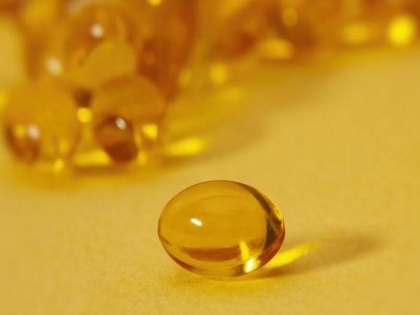Expert Overview: Vit-D, AI and other new heart health management aids
By IANS | Published: July 8, 2023 02:36 PM2023-07-08T14:36:56+5:302023-07-08T14:40:08+5:30
Chennai, July 7 Dr Vijit Cherian, a noted cardiologist at the The Madras Medical Mission Hospital, has said ...

Expert Overview: Vit-D, AI and other new heart health management aids
Chennai, July 7 Dr Vijit Cherian, a noted cardiologist at the The Madras Medical Mission Hospital, has said that a treatment using Vitamin D is a relatively new method to protect heart health.
Cherian also said that people above the age of 40 must regularly monitor the condition of their heart by going for medical check-ups.
Here are the excerpts from an exclusive interview with IANS:
IANS: There is much excitement about the recent news that Vitamin D can be efficacious in the treatment and control of cardiovascular diseases. What is your take on the theory?
Cherian: Treatment using Vitamin D is relatively new but doctors working in this field have been pursuing research on the impact of Vitamin D on human heart and how it can be used for successfully treating heart ailments.
Vitamin D can be used for reducing inflammation in the body. It is to be noted in this context that inflammation in the body is not good for the patient. Inflammation in lining in blood vessels or endothelial dysfunction.
The usage of Vitamin D also reduces blood pressure in patients.
IANS: In the days to come, will Artificial Intelligence (AI) play a major role in cardiology treatment?
Cherian: AI is in evolution and will certainly help in early diagnosis of the disease. It is able to collate a large number of data and even AI enabled imaging of retina can accurately predict cardiovascular diseases.
There are several researches going on in this area and according to the latest developments, it is known that AI system has an accuracy between 70 to 80 per cent. This could be used as a second referral mechanism for cardiovascular examination at a deeper level.
IANS: Do you feel that the diagnosis and treatment available in India is on a par with thse in developed countries?
Cherian: Yes, we have all the technology and treatment facilities in India like that in the developed countries. The problem is the cost of this treatment.
Unlike in the West and other developed countries, in India, the number of people who can afford this treatment are few compared to other developed countries. However I can categorically state that the facilities in treatment is available in India just like that in any other country in the world.
IANS: Is the number of cardio cases on the decline in India?
Cherian: I am afraid the number of cardio cases is on the increase in the country and the large-scale urbanisation is one of the main reasons for this increase in cardio cases.
Mainly, the sedentary lifestyle and changed eating habits have led to ill health, obesity and thereby increased cardio cases.
When compared to rural areas of the country, in the urban areas the number of cardio cases is double. While rural areas, if you take a study, seven out of 100 have cardio diseases but in urban areas it is double or rather 14 cases when 100 people are taken.
IANS: What are your suggestions for reducing in cardio cases and how to prevent heart attacks?
Cherian: First and foremost, there should be an exercise regimen for every individual and at least one should walk briskly for half an hour a day. Sedentary lifestyle is one of the major reasons behind this and people should understand that they have to have some movement to maintain a healthy lifestyle.
If you are above 40 there should be a detailed checkup at least once a year which can detect the possibilities of heart ailments and which can be taken care of and thereby reducing the chances of an heart attack.
Food habits are also another reason for the increase in heart diseases which should also be regulated with an increase in intake of green leafy vegetables and reduction in oil consumption.
Disclaimer: This post has been auto-published from an agency feed without any modifications to the text and has not been reviewed by an editor
Open in app